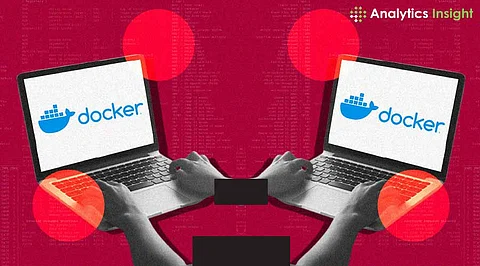

In the ever-evolving world of software development, new tools and technologies emerge constantly, promising to streamline workflows and boost productivity. Among these innovations, Docker stands out as a revolutionary platform that has transformed the way developers build, ship, and run applications.
Docker is one of the crucial platforms used by developers and companies in the world constantly enhancing in accordance with progressive technologies. For new developers, understanding Docker can seem challenging at first, but with the right guidance, it can transform the way they build, deploy, and scale applications.
In simple terms, Docker is an open-source technology that allows developers to automate the deployment of applications inside lightweight, portable containers. Docker containers are the same as virtual machines but are much lighter as they run under a native operating system. This makes them fast, easy to manage and convenient to transfer from one environment to the other.
For many developers, setting up development environments and ensuring applications run the same way on different machines can be challenging and time-consuming. These challenges are solved by Docker which affords consistency, and portability. That is why, when developers create a container, they can be sure that a certain application will run on any system with Docker.
In addition, applications are scalable using Docker containers. In a world where apps must serve more users and perform more functions, Docker provides developers with a way to put up additional instances of an application with little increase in resource use, which makes it very easy to expand or contract depending on the load.
1. Environment Consistency: Docker helps to make the behaviour of software identical to how it operates in both the development and testing phase and also the production stage. This conformity brings about savings in the debugging process in addition to speeding up development.
2. Enhanced Productivity: Docker automates repetitive setup tasks, allowing developers to focus more on coding than managing environments.
3. Portability: Docker makes it easy to track changes in your environment setup, making it simpler to replicate previous states or debug issues.
4. Version Control: By using Docker to maintain backup copies it becomes easier to restore previous conditions or when fixing problems.
5. Isolation: GitHub containers run in isolation, meaning that developers can test any number of software variants without interference.
Docker is quite easy to begin with, these are the key steps to take about how to start with Docker. Inexperienced users can start with the installation of Docker on local computers and learning some of the most fundamental Docker commands. The Docker registry is a cloud service that is used for managing a set of Docker images which compromises thousands of ready-made images to start different projects.
1. Dockerfile: A text file that contains instructions for building a Docker image.
2. Image: A lightweight, standalone, and executable package that includes everything needed to run a piece of software.
3. Container: A runtime instance of an image.
4. Docker Compose: A tool for defining and running multi-container Docker applications.
Docker has its own set of issues, despite having a host of benefits. Concepts and practices associated with the use of containers may be quite unfamiliar to new developers participating in the development process. Additionally, managing container orchestration in complex, production environments often requires additional tools like Kubernetes. Despite these challenges, the benefits of Docker far outweigh the initial learning investment. As containerization continues to gain traction in the industry, proficiency in Docker is becoming an increasingly valuable skill for developers at all levels.
For new developers, Docker is a game-changer. By allowing applications to run seamlessly across different platforms, Docker simplifies deployment, boosts productivity, and minimizes issues that arise from inconsistent environments. As software development continues to advance, mastering tools like Docker will give new developers a significant edge, opening doors to collaboration, scalability, and efficient application management. Embracing Docker early in your career will enhance your technical skill set and prepare you to tackle the demands of modern software development with confidence.
